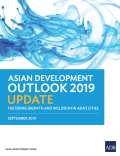
Growth in developing Asia is moderating but remains robust. As global trade slows and investment weakens, regional growth forecasts are trimmed from Asian Development Outlook 2019 by 0.3 percentage points for 2019 and by 0.1 points for 2020 compared to April forecasts. Developing Asia is also urbanising rapidly, promising job creation and economic growth. As cities expand over municipal boundaries and become more connected with one another through flows of goods, services, and people, better planning coordination is needed at all levels of government. Realising their promise requires a holistic agenda for cities.
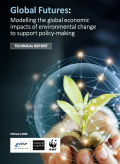
This study, which calculates the economic cost of nature’s decline across 140 countries, shows that the loss of six ecosystem services under a business-as-usual trajectory leads to losses of US$9.87 trillion in real GDP by 2050. This represents an annual loss of US$479 billion per year. In contrast, under a scenario in which land-use is carefully managed to avoid further loss of areas important for biodiversity and ecosystem services, economic outcomes would be dramatically better, with global GDP rising by $490 billion per year above the business-as-usual calculation.
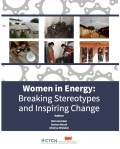
This publication introduces the Gender Mainstreaming Framework in the energy value chain as well as provides different case studies on gender inclusion from India and Nepal. The case studies focus on gender mainstreaming practices in the energy sector—specifically in the off-grid, grid connected, and clean cooking segments. They highlight the practical interventions and capture their replicable processes and aspects.
Visioning Futures: Improving infrastructure planning to harness nature’s benefits in a warming world
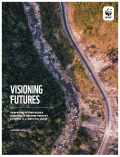
This report outlines a new planning approach integrating considerations of natural capital and ecosystem services, climate risks and resilience, and sustainable development needs to support social-ecological system scale planning. It provides key recommendations for global and local institutions influential in infrastructure development, from multilateral development banks and other funders to NGOs and the private sector, to address these gaps and facilitate an improved planning approach.
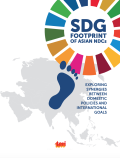
This report explores the linkages of Nationally Determined Contributions (NDCs) and the Sustainable Development Goals (SDGs) and captures if these linkages are evident in countries’ NDCs. It offers the first essential step in further strengthening institutional linkages at multiple governance levels for achieving SDGs and NDCs simultaneously and efficiently.
